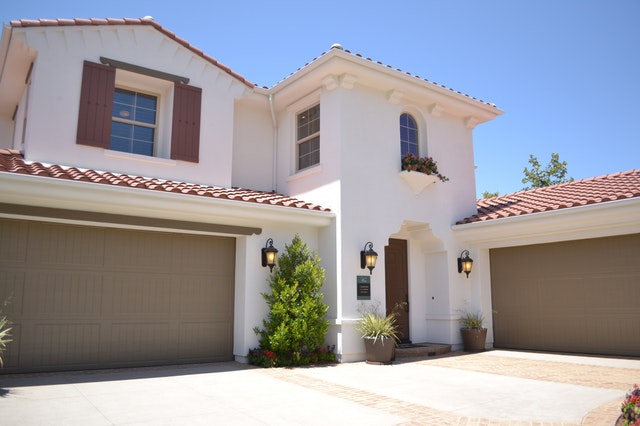3 Tips To Save For A Down Payment
 Saving up for a down payment can feel overwhelming. Most people have never saved up the kind of money it takes for a down payment. It can be done, though. The goal is to put 20% down on a house. This is what it takes if you don’t want to have to pay private mortgage insurance every month.
Saving up for a down payment can feel overwhelming. Most people have never saved up the kind of money it takes for a down payment. It can be done, though. The goal is to put 20% down on a house. This is what it takes if you don’t want to have to pay private mortgage insurance every month.
However, you don’t have to absolutely put 20% down. Some mortgage programs, such as VA and FHA loans, let borrowers put down as little as zero down or about 3.5% down. There are extra requirements with any kind of mortgage you get, so be sure to discuss those with your lender.
Whichever kind of mortgage you decide to try for, here are some tips for saving for a down payment.
Get A Head Start
The sooner you start saving for a down payment, the easier it will be. Even if you currently can’t see having any extra money for savings, tuck as much as you can into a savings account. Every single dollar will help later on.
Invest Safely To Earn Interest On Your Down Payment
If your home purchase goal is two or more years away, consider investing your savings so it earns interest. Since you’re counting on that money to use for a life goal, invest in things with low or no risk. Also, invest in things that allow you to cash out with no penalties when you think you’ll be ready to buy.
Ideas include a bank CD, money market, tax lien certificate, or municipal bonds. You won’t earn massive amounts of interest with any of these vehicles, but in return you’ll have flexibility and security.
Request An Inheritance Advance
If you know that your parents have you in their will, you can request to get part of your inheritance early. Your parents may be able to give you up to a certain amount for your mortgage down payment with no penalty.
Be sure to check with your potential lender. Some mortgage programs have caps on how much of the down payment can be sourced from a third party.
Once you decide what kind of home you might like, and which mortgage programs you might qualify for, you can decide how much you’ll need to save for a down payment. Use these three tips to save up. Before long, you’ll be ready to start shopping for the home of your dreams.
An essential partner is your trusted home mortgage professional. You can count on them to guide you every step of the way through your home loan process.

 The real estate market does not occupy a space outside the laws of physics. As Sir Isaac Newton so aptly theorized, “For every action, there is an equal and opposite reaction.” When applying the English physicist’s Third Law to today’s rising mortgage rates, anticipating the reaction can be valuable information if you are planning to buy or sell a home or commercial property.
The real estate market does not occupy a space outside the laws of physics. As Sir Isaac Newton so aptly theorized, “For every action, there is an equal and opposite reaction.” When applying the English physicist’s Third Law to today’s rising mortgage rates, anticipating the reaction can be valuable information if you are planning to buy or sell a home or commercial property. It’s no secret that mortgage lending institutions look favorably on steady paychecks and positive debt-to-income ratios. That can leave many self-employed prospective home buyers feeling anxious about getting approved for a mortgage. But just like the 9-to-5ers who get regular paychecks, self-employed people earning a good living can get approved with a little due diligence.
It’s no secret that mortgage lending institutions look favorably on steady paychecks and positive debt-to-income ratios. That can leave many self-employed prospective home buyers feeling anxious about getting approved for a mortgage. But just like the 9-to-5ers who get regular paychecks, self-employed people earning a good living can get approved with a little due diligence. Although the real estate market is currently booming, the last housing bubble burst remains relatively fresh in investors’ minds and that has many taking a long look at crowdfunding.
Although the real estate market is currently booming, the last housing bubble burst remains relatively fresh in investors’ minds and that has many taking a long look at crowdfunding. Recent medical school graduates, saddled by high student loan debt, sometimes have a hard time qualifying for a first mortgage. Now, however, a growing number of lenders will consider future earnings potential of high earners in the medical profession as a way to offset high debt ratios. But specialty mortgages for young physicians aren’t the only unique loans available today.
Recent medical school graduates, saddled by high student loan debt, sometimes have a hard time qualifying for a first mortgage. Now, however, a growing number of lenders will consider future earnings potential of high earners in the medical profession as a way to offset high debt ratios. But specialty mortgages for young physicians aren’t the only unique loans available today.